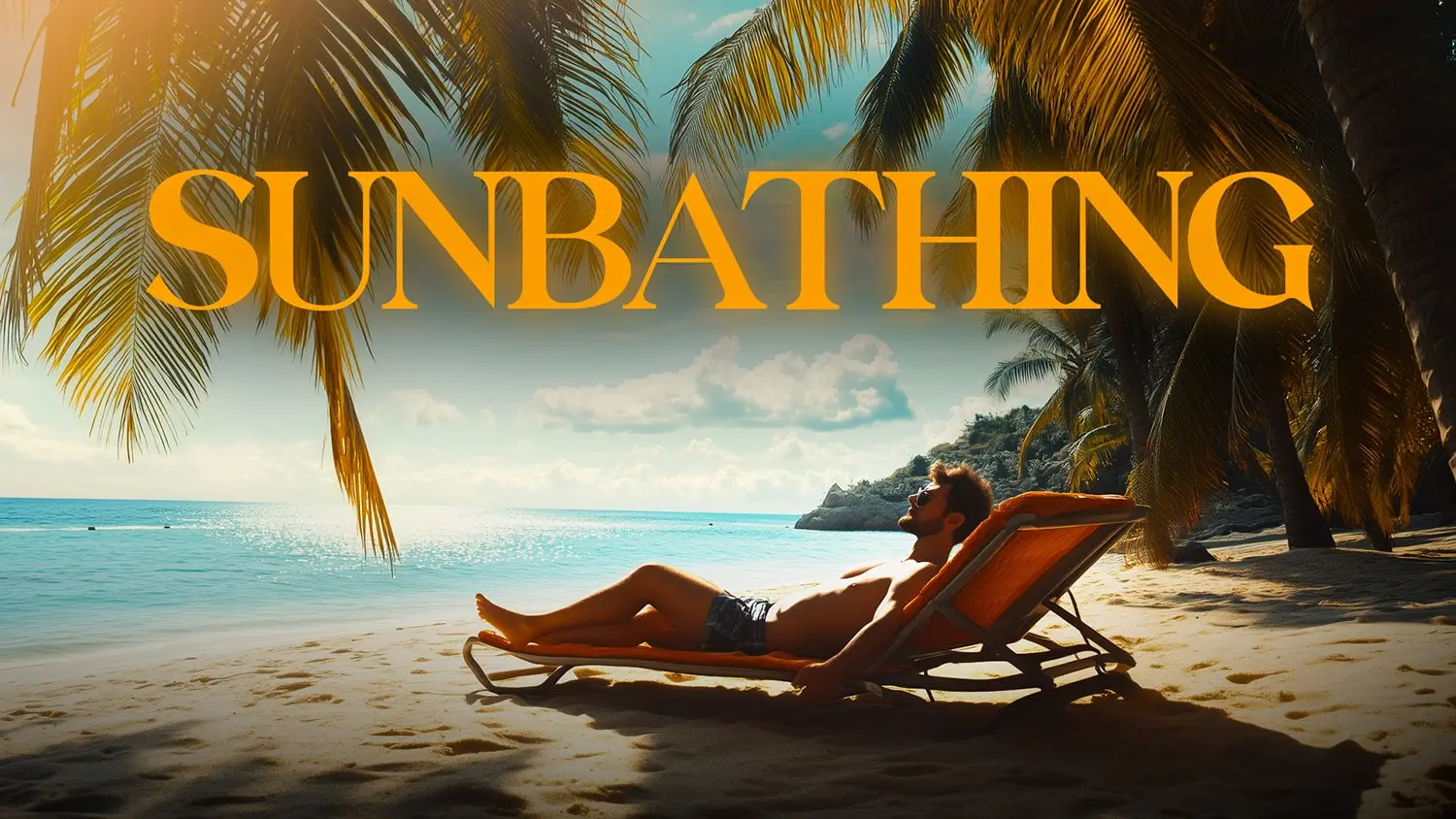
Sunbathing — A cause or a cure for cancer?
In our modern day, there’s an unfortunate fear of the sun fueled by misinformation.
Most people fear that the sun will give you skin cancer.
But is this really true?
The truth
Think about this for a moment: The sun is the source of all life on Earth.
Plants absorb the sun’s energy thanks to photosynthesis, and animals and humans get this energy through the food chain.
But the sun’s immense power doesn’t stop there.
For us humans, laying in the sun provides us with essential vitamin D and a large amount of health benefits, to the point that,
It’s practically vital for good health.
As part of her protocol, Dr. Budwig had her cancer patients soak up about 20 minutes of sunshine daily. A simple way to see it: A plant that lacks sunlight will not become green, healthy and grow with abundant flowers. The same can be said for us: we need the power of the sun to reach our full health potential. We promote this through our home-based cancer care program.
The problem
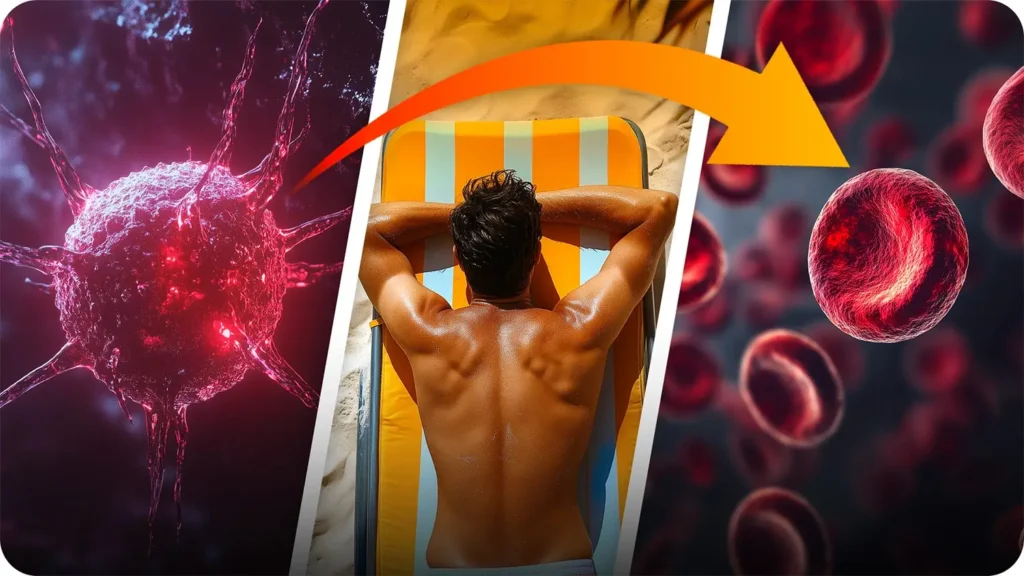
Far too many people nowadays are vitamin D deficient.
Interestingly enough, the people who tend to be the most vitamin D deficient are cancer patients:
“More than three-quarters of cancer patients have insufficient levels of vitamin D (25-hydroxy-vitamin D), and the lowest levels are associated with more advanced cancer” reported a study presented on October 2, 2011, at the 53rd Annual Meeting of the American Society for Radiation Oncology.
Vitamin D deficiency has been linked not only to certain cancers but also to autoimmune diseases, heart disease, high blood pressure, depression, osteoporosis, and many other ailments.
This is why, as part of her Budwig Protocol, Dr. Johanna Budwig had her cancer patients soak up about 20 minutes of sunshine daily.
She stated: “The sun’s rays are very much in accord with humans. It is no coincidence that we love the sun. The resonance in our biological matter is so strongly attuned to absorb the sun’s energy…there is nowhere else on Earth where the sun’s energy is found in a higher concentration than in humankind. This accumulation of the sun’s energy…is enhanced when we consume food which has electrons, which in turn attract the electromagnetic waves of sunbeams of photons. A great number of these electrons, which are in accordance with the wavelength of the sun’s energy, are to be found in seed oils, for example. Technically speaking, these oils are even known as electron-rich essential highly unsaturated fats (as in flaxseed oil in the Budwig diet).”
How come, then, are we constantly hearing warnings about sun exposure causing skin cancer?
There’s a crucial caveat that we must understand.
We all know there can be “too much of a good thing,” and that is true when it comes to sunbathing.
The key to proper sun exposure is to take precautions and, very importantly, not to overdo it.
Additionally, some people say they do not feel good when they sunbathe.
The reason is most likely due to improper diet. Eating refined processed cooking oils instead of cold-pressed oils puts you at risk of sunburn more easily. Unfortunately, it’s this combination of overexposure, too many hours sunbathing, bad diet, and dangerous suntan lotions that are among the underlying causes of skin cancer today.
This is what Dr. Budwig had to say about this connection: “Thus, the human who eats refined foodstuffs or food which lacks electrons not only cuts off his oxygen enough to suffocate himself, he also cuts himself off from the effects of the sun. When such people cover their skin with a layer of paraffin as sun protection and then lie in the sun, the burn damage is very great because the electrons, which cannot be stored, and the electron-rich biological molecules are missing.
We can store the sun’s energy, and the living body is then in a position to summon, depending on the situation, energy from this storage depot of electrons. When these depots are empty, the person then feels irritable, tired, and his limbs become heavy. But we can replenish these storage depots by taking electron-rich seed oils (as in freshly ground flaxseeds which are part of her muesli recipe). These are set to receive solar energy. This photon, so animated, so dynamic, so powerful, can be captured by suitable electrons.”
Once you switch to cold-pressed oils, you will probably find that within about three or more months, you start to tan more easily, without burning and feeling uneasy when being directly exposed to the sun.
But there’s another important point we need to address.
Sunscreen
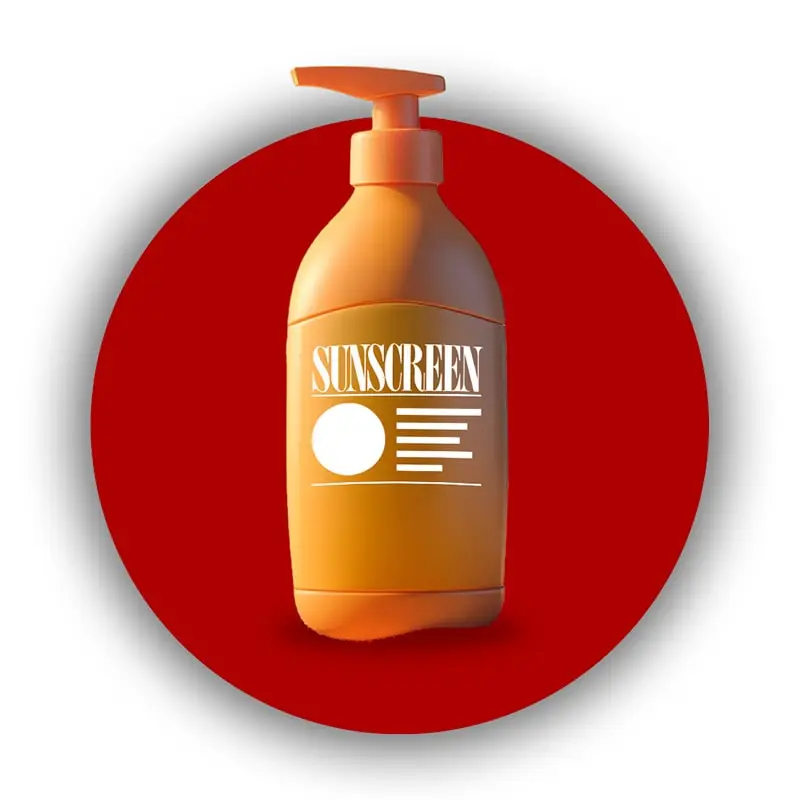
If you are doing outdoor activities or need to be out in the sunshine for a prolonged period of time, longer than 20–30 minutes, it’s essential to cover up or find shade as much as practically possible or use a safe and natural sunscreen.
Unfortunately, selecting a safe sunscreen is not easy.
Sadly, there is very little evidence that using sunscreen will prevent skin cancer, and, in many cases, due to the high level of toxic ingredients in many sunscreens, they actually contribute to skin cancer. A 2019 report from the Environmental Working Group (EWG) found that nearly two-thirds of sunscreens do not work correctly and contain dangerous ingredients that are readily absorbed by the body.
This is why we generally recommend that you use sunscreen as a “last resort”, as the best way to avoid overexposure is to cut down on the amount of time you’ll be in the sun or to cover your skin.
The alternative
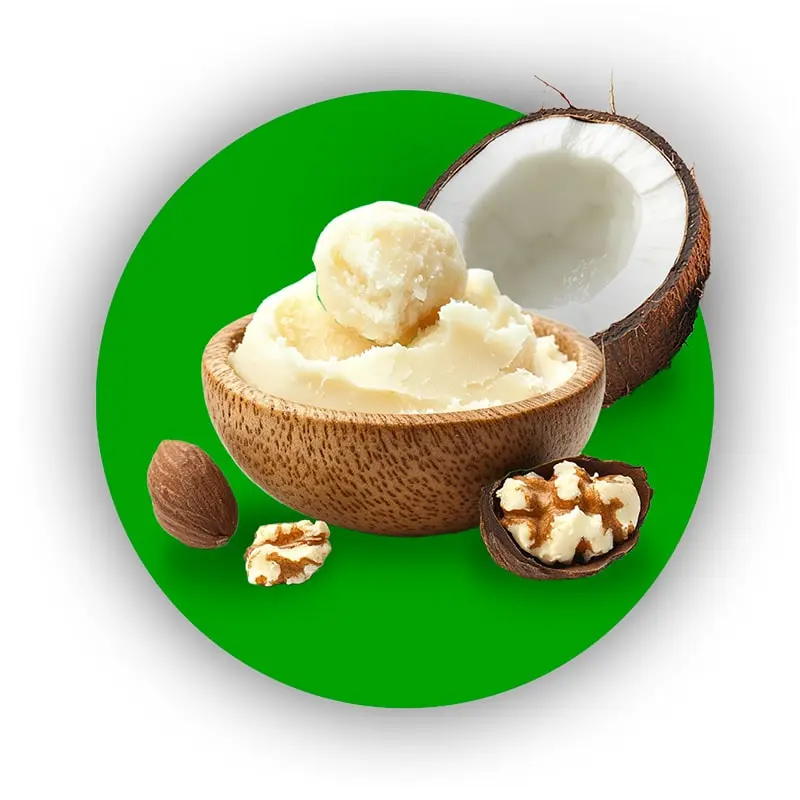
But if you do need to use sunscreen,
You can either use shea butter or coconut oil with its natural SPF of 4-6 to be acceptable sunscreen protection.
Or, you can take a look at this list of the best and the worst sunscreen protection.
Tips to maximize the advantage of the sun
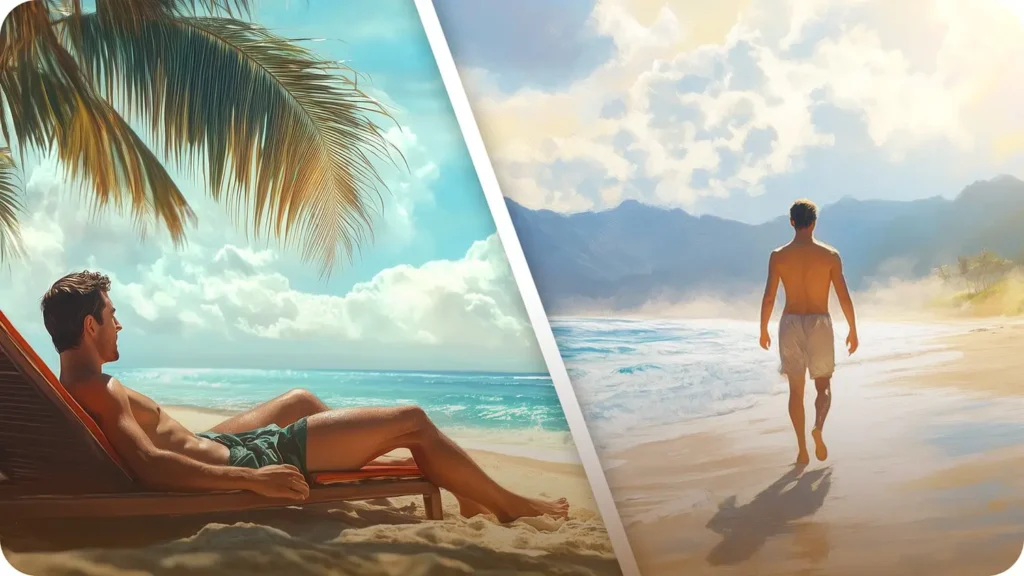
Dr Budwig told her patients to wear as little clothing as possible, thus exposing all or at least large areas of their skin.
Brisk walking or other activities outdoors provide you with double benefits.
Also, to help enjoy direct exposure to the sun and reduce any discomfort, do daily grounding by walking barefoot on the Earth, such as the lawn or beach. This will help get rid of the excessive electrons that have accumulated in your mitochondria.
Just a word of caution: remember that it’s vital to avoid high-intensity sun exposure until you’ve been off bad refined seed oils and only consuming cold-pressed oils for about 3 to 6 months.
How to increase Vitamin D intake
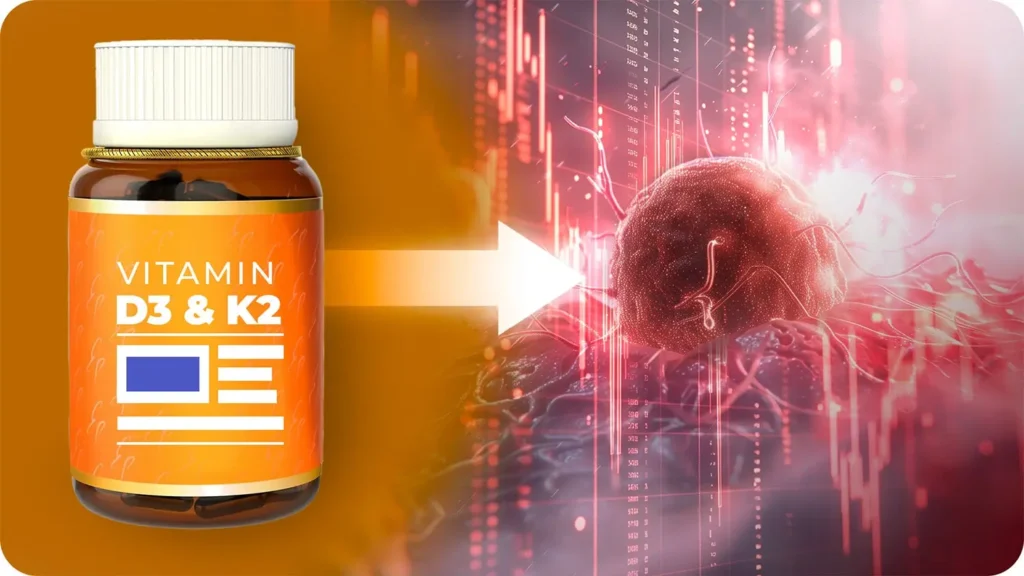
To highlight the importance of vitamin D when it comes to cancer:
One study showed a stunning 77 percent reduction in the incidence of ALL cancers over a four-year period for those who maintained even the modest vitamin D blood level of 40 ng/ml.1 (Optimal anti-cancer levels are 50 to 70 ng/ml.)
A large German study of 24,340 adults ages 35 to 64 showed that the quartile (one-fourth of the participants) consuming the most vitamin K2 were 28 percent less likely to die from colon, breast, prostate, or lung cancers than those in the lowest quartile of consumption.
The Budwig Center encourages everyone, as part of our remote care program, especially people with cancer, to add high doses of Vitamin D3 and K to their daily routine, as well as sunbathing. 10,000iu to 20,000iu daily of vitamin D along with Vitamin K2 would be good, and some functional doctors even recommend up to 50,000iu daily for people with cancer. It’s essential also to take Vitamin K2, especially if you are taking high doses of vitamin D for better absorption and to prevent an overdose.
In this article, you’ve learned the importance of sunbathing and practical tips to do it safely.
This is just one of the things which can significantly help you fight cancer.
If you’d like additional help to address the other underlying causes of cancer please contact us.
References:
1 http://ajcn.nutrition.org/content/85/6/1586.full
2 Mizuta T, Ozaki I. Clinical application of vitamin K for hepatocellular carcinoma. Clin Calcium. 2007 Nov;17(11):1693-9.
3 Otsuka M, Kato N, Shao RX, et al. Vitamin K2 inhibits the growth and invasiveness of hepatocellular carcinoma cells via protein kinase A activation. Hepatology. 2004 Jul;40(1):243-51.